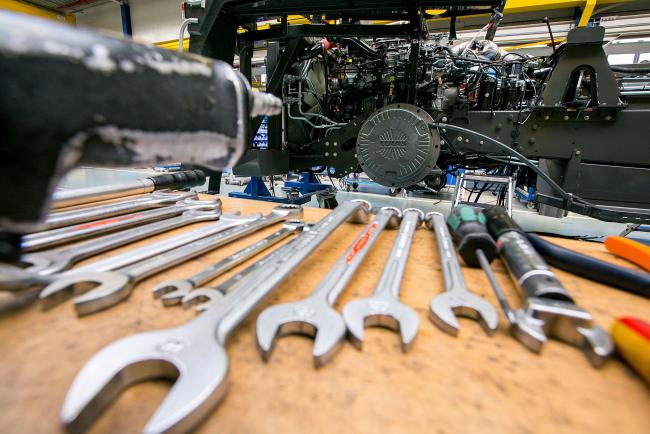(Bloomberg) -- An unexpected drop in German factory orders suggests Europe’s largest economy hasn’t yet seen the worst of its slowdown.
The 2.1% decline in December -- the steepest in almost a year -- puts a damper on recent reports suggesting that manufacturing is slowly working its way out of a slump that left the nation with the weakest annual growth since 2013. Factory orders are a key measure of the economy’s strength because they indicate future output.
The euro fell after the report and traded at $1.1000 at 8:06 a.m. Frankfurt time.
While the government has raised its 2020 growth forecast to nearly twice last year’s pace on the back of a resilient labor market, overall momentum remains muted and new risks have appeared. China’s coronavirus is disrupting global trade, the U.S. has revived threats of tariffs on European imports, and climate change is forcing companies to rethink how their business is run.
What Bloomberg’s Economists Say
“We suspect the economy has reached its low point and expect momentum to gather pace gradually in 2020. Still, there’s no evidence of a significant recovery.”
-- Jamie Rush.
Labor unions remain nervous about the outlook. IG Metall, Germany’s biggest union, has called on employers to refrain from cutting jobs and instead constructively working toward a strategy for future growth. While union representatives are seeking wage gains in the current bargaining round, they haven’t made specific demands.
Factory orders from the euro area plunged 13.9% in December, with a particularly sharp drop in investment goods. Domestic orders rose for a second month.
